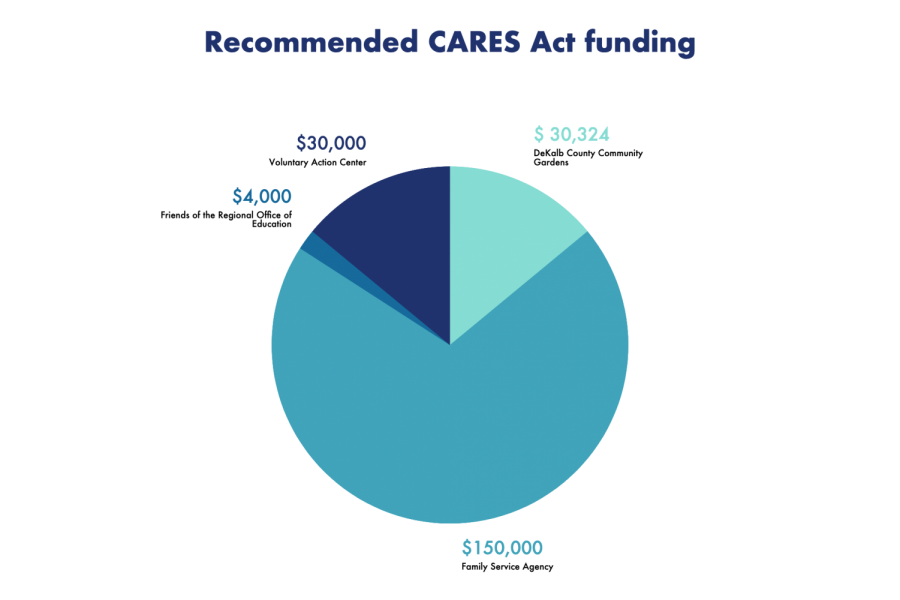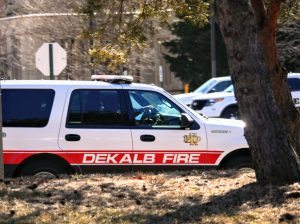City Council to vote on CARES Act funding allocation
Recommended CARES Act funding to be discussed at Monday’s City Council meeting. Source: Jan. 11 City Council agenda
January 9, 2021
DeKALB – A public hearing on the use of additional funds from the Coronavirus Aid, Relief and Economic Security Act will be held at Monday’s City Council meeting.
The public hearing is set before a vote on an amendment to the Community Development Block Grant Five Year Consolidated Plan and 2020 Annual Action Plan to add an additional $272,425 in CARES Act funding.
To take part in the public hearing, residents can submit written comments on the proposed amendment to Joanne Rouse, community service coordinator of the Community Development Department no later than 4 p.m. on Monday, or appear at the hearing at 6 p.m. Monday at the DeKalb Public Library, 309 Oak St or via Zoom.
The additional $272,425 in CARES Act funding, plus the remaining $46,899 in initial CARES Act funds, will be used to expand public services to address local needs created by COVID-19, according to the Jan. 11 City Council agenda.
“The city is in a position to proceed with a second expansion of the 2020 Coronavirus Public Services contracts that were approved by City Council on July 27, 2020, because DeKalb has qualified for additional, supplemental CDBG funding,” the agenda reads.
Public services receiving funding include DeKalb County Community Gardens, Family Service Agency, Friends of the Regional Office of Education and the Voluntary Action Center.
If the resolution is passed, the Family Service Agency would receive $115,000 for rent and mortgage assistance, $15,000 for utility payment assistance and $20,000 for operating expenses.
DeKalb County Community Gardens would receive $30,324, VAC would receive $30,000 and Friends of the Regional Office of Education would receive $4,000.
The city will also allocate $100,000 to improve the 2018 Public Facilities Project to provide free Wi-Fi service to the Annie Glidden North Neighborhood and add $5,000 to administrative spending to support the additional time and work related to implementing the new funds, according to the agenda.








